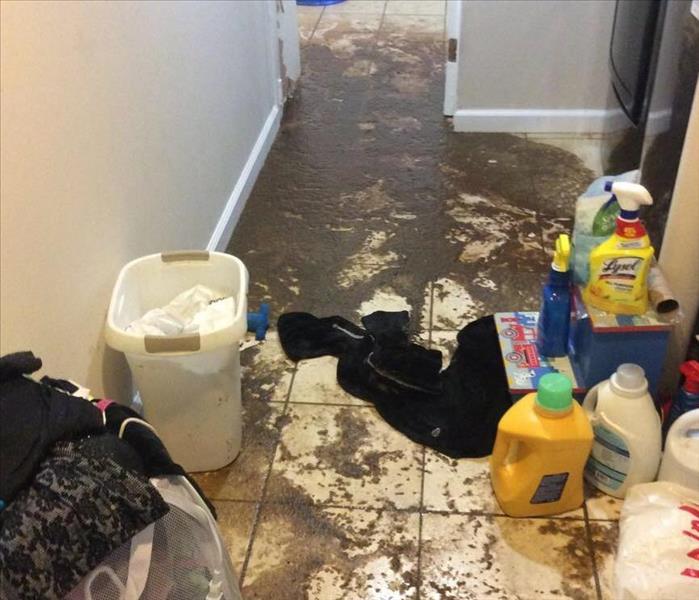What to Do When Sewage Backs Up in Your Home
9/4/2018 (Permalink)
A sewage backup can be a homeowner’s nightmare.
Having to deal with a disgusting mess and the damage to items in your home are often just the start of the problems. If the backup is severe enough, you may have to keep out of your house until the damage restoration is complete. There are also potential serious health risks from the contamination. And don’t forget about the potential major hit to your wallet, especially if you have to pay not only for restoration services but for replacements of ruined furniture and appliances too.
In order to protect your home, it’s good to know some preventive measures you can take, as well as the best steps to follow right after a sewage backup to mitigate the damage.
Prevention
To save yourself and your home from a sewage backup, here’s some advice to keep in mind:
- Keep your drains clear of clogging. Don’t flush items down your toilet that can cause build up in the pipes, such as diapers, sanitary napkins, or thick waste. Also, don’t get rid of grease down the sink, as grease can harden within the pipes and then collect other waste, creating a major clog.
- Conduct regular inspections of all the pipes and valves in your home and make sure they are well maintained.
- Don’t plant trees too close to the sewer lines, as over time the roots can grow and damage the pipes.
- Keep a working sump-pump on hand, just in case.
Aftermath
If a sewage backup does happen, you may be able to limit the damage considerably if you take the following steps:
- Call for professional sewage cleanup and restoration services ASAP. Special training and equipment is necessary to safely deal with the hazards of unsanitary sewage water, and the quicker you enlist help, the better you can contain this emergency situation.
- Put on protective clothing, such as gloves, rubber boots, and protection for your eyes, nose, and mouth.
- Open windows to allow air circulation and remove any fumes.
- Use your sump pump to remove excess water.
- If it is safe, shut off the power. But if you have any doubts, don’t touch electrical equipment.
- Discard any soaked, dirty items and debris. Try to remove unaffected valuables from the premises to keep them safe.
- Scrub any items that have been only slightly affected with an antibacterial soap and water then let them air dry.
- Try adding a small amount of chlorine bleach to standing water to help disinfection.
To keep safe, here’s a list of things you should NOT do:
- DON’T attempt any cleaning measures if you have the slightest doubt about sanitation. Remember: safety first.
- DON’T attempt to flush toilets or drain sinks and tubs. Wait for the professionals to inspect, sanitize, and restore your plumbing before you use your water system again.
- DON’T use harsh chemical to try to unclog the drains. You don’t want to cause further damage to your pipes. This is why professionals have special training and cleaning solutions.
- DON’T let children or pets near the affected areas until your house been thoroughly cleaned, sanitized, and restored.
If you are dealing with sewage backup, SERVPRO’s specially trained technicians are here to help. Call us 24/7 at 732-858-5422.





 24/7 Emergency Service
24/7 Emergency Service
